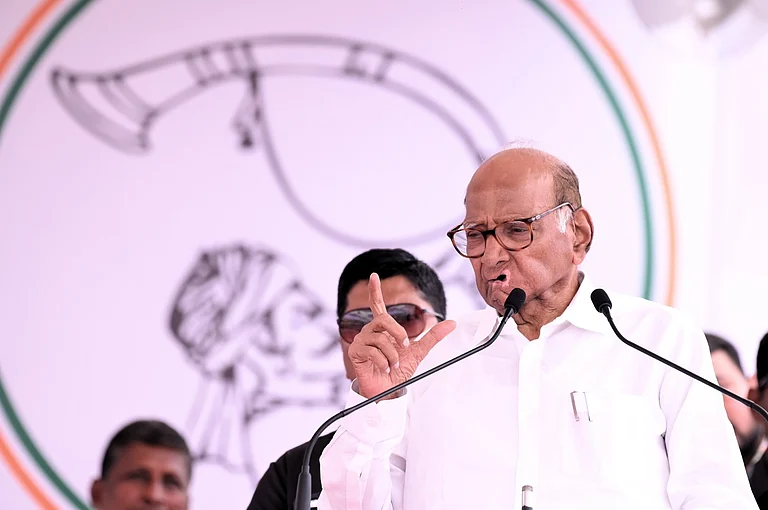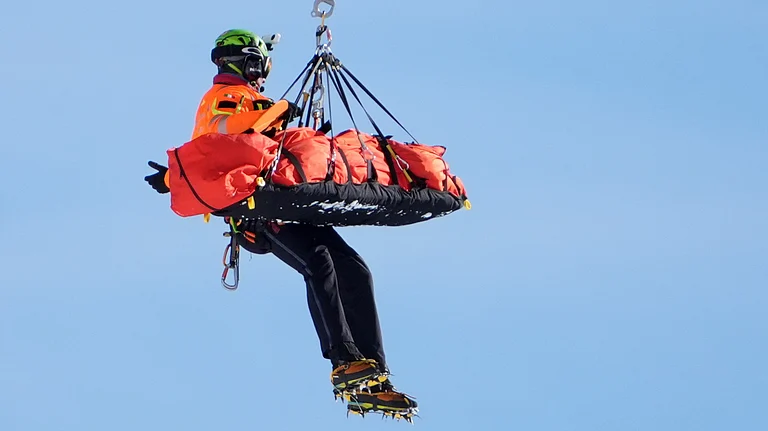High-sounding techno-jargon and extravagant promises seems to be the usp of companies trying to capitalise on the infotech boom that is sweeping across the country. While tall projections and expected growth figures have helped many companies raise money, subscribers and investors who failed to see through the claims have been given a raw deal.
A prime example is Dishnet dsl, a firm promoted by the Sterling groups C. Sivasankaran, which recruited tens of thousands of subscribers and an estimated $300 million of capital on the promise of providing state-of-the-art "dsl technology" but has thus far failed to deliver. Well-connected with the government, Dishnet has no worries on that score; a bjp Rajya Sabha MP is a staunch lobbyist while financial wizard S. Gurumurthy of Swadeshi Jagaran Manch fame, who is said to have negotiated between Sivasankaran and Nadar associations in the Tamil Nadu Mercantile Bank case earlier is also said to be a close associate. It also has a former chairman of mtnl on its rolls.
In countrywide advertisements, Dishnet dsl said it would provide superfast access to the Internet through a revolutionary new technology (actually, its been around for several years), that is, "digital subscriber lines". A perfectly feasible project, involving the installation of specialised equipment ("d-slams") at mtnl/ Department of Telecommunications (DoT) exchanges and an appropriate "dsl" modem at the subscribers end.
Dishnets usp was that the speed of the ordinary telephone wire (28.8 kbps, or kilobytes per second) would be enhanced by a factor of several hundreds. No more endless dialling or waiting to access a website or download data. What used to take hours would take seconds. Widely used in the US, Europe and Singapore, this technology comes in two packages: "adsl" or assymetric dsl - which is meant for individual consumers and "sdsl" or symmetrical dsl, which is meant for corporates.
Dishnet had duly applied for permission to the DoT. So confident was it of getting the green signal that it recruited over one lakh subscribers (1.8 lakh, by its own admission). It also raised money (estimated at $300 million) through private placement of equity. The issue was handled by Jardine Fleming. "We had raised money from well-informed and reputed players like Covad, CenturyTel, hsbc and Citibank, who are our strategic and financial partners. These players had committed money after an exhaustive analysis of our long-term business plan," says Dishnet dsl financial manager V. Rajindra.
Anyhow, DoT and mtnl played spoilsport, refusing to grant permission. The logic, according to telecommunications minister Ram Vilas Paswan, was that opening the gates to one private party would mean opening gates to all. Anyway, since mtnl was itself an Internet service provider (isp), it could provide dsl technology on its own and is, in fact, seriously exploring the option. Paswan said there was no intention of giving permission for dsl via DoT either now or in the future.
Dishnet now claims that it had never applied for permission in the first place because "we wanted our subscribers to use the Internet without having to incur any DoT/mtnl charge". Also, the company wanted to supply dsl service by laying its own copper wires from its dslams to the vicinity of the customer. Curiously, the telecommunications ministry maintains that Dishnet dsl was keen on licences.
Dishnet further says that it had never claimed superfast access as a usp. Because superfast connectivity is only possible once the "vsnl-held monopoly over the international gateway" is ended, this being "the sole reason of the poor quality of service up to date".
What Dishnet did get was permission to set up its own gateway, one of the first private isps to do so, after the government decided to let players other than vsnl into the fray. The bandwidth held by private isps, however, is still minuscule as compared to vsnl.
Dishnet wound up changing its name to Dishnet Dial and offering ordinary dial-up services, just as slow and laborious as any other private isp. There was no further mention of dsl. In between, it also advertised under the name of "eth Internet", offering various financial packages to subscribers. Originally, eth or education-to-home, a project floated in Maharashtra with the benevolent encouragement of ncp chief Sharad Pawar and supervised by the man behind the Indian supercomputer, Vijay Bhatkar, was touted as a distance learning project. But information and broadcasting ministry officials feel the apparent objective was a backdoor entry for dth (direct-to-home) broadcasting.
With a firm "no" from DoT, the company admits that having made no headway in using the governments fixed access infrastructure, it will have to look to private basic service operators. It is now back to advertising under the name of Dishnet dsl, promising broadband Internet access, instantaneous file transfers and downloads in minutes. In order to make good its promise to provide its subscribers with dsl, Dishnet will now have to lay its own telecom infrastructure or use that of private operators, which will take some time. IT experts agree that dsl is the inevitable technology for the future.
The company admits to having only 1,000 dsl subscribers currently. The rest of the 1.8 lakh subscribers it has on its rolls are dial-up customers. It is proceeding with its dsl strategy in a slow and steady manner, it says.
Another company which jumped the gun in a similar fashion was S Kumars. It had mooted "one of the worlds largest e-commerce networks", skumars.com, in effect a countrywide computer network spanning a thousand urban centres, all connected via vsats (very small aperture terminals) in KU band.
"If you want to be a dealer in everything from safety pins to refrigerators, CDs to shampoos, all you have to do is set up your own e-business. And you can do that by investing just Rs 2 lakh," read the advertisements. The 50,000 franchisees were to be a combination of "supermarket, educational institute, a library, a stock brokerage, a travel agency and a communication centre.
Thousands of franchisees, at Rs 2 lakh, each, were recruited. IT industry professionals say the idea is a good one in itself but not in accordance with existing regulations on vsats. DoT has refused to grant permission "for the operation of 64 kbps private data domestic service" and the project hasnt taken off. While its true that DoT does give permission for Closed User Group licences, it does so only for internal corporate, rather than commercial, use.
The firm is now lobbying - through a significant partner of the National Democratic Alliance - for a change in government policy which will allow commercial use of vsats and permit its project to take off but that doesnt seem to be happening in a hurry. Other players would also like to see a policy change, although the efficacy of satellite-based Internet is still to be established.
Dishnet, too, has friends in high places. Of late, its been exerting pressure on the government to allow former National Informatics Centre chief . Seshagiri to come on board. Having taken voluntary retirement, he cannot take up a job in the IT sector without government permission. He has already been turned down once. But pmo functionary Sudheendra Kulkarni has written to the ministry of information technology, requesting that the matter be reconsidered and permission granted.
According to Paswan, DoTs job ends with granting or refusing permission. The ministry of information technology only regulates e-commerce. The consumer is on his own.


























